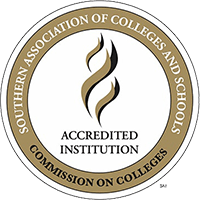In today’s evolving health care community, alternative medicine often complements traditional medicine approaches. More and more integrative approaches to wellness are available in our day-to-day lives, leading to an increased need for good alternative medicine practitioners. According to the National Center for Complementary and Integrative Health, more than 30% of Americans now combine their traditional medical care with complementary additions. Finding good alternative medicine schools comes down to these five priority issues when examining the school.
Not all schools are equal, and not all schools offer a flexible, high-quality program to meet students’ needs in an adapting and changing society. When you find a school that values school accreditation, faculty experience, degree delivery options, and flexibility, the school has likely earned many awards and accolades in the education community.
1. School Accreditation
To ensure your university program meets quality standards, you will only want to look at accredited programs. Employers and graduate school programs require evidence that the degree you received is from an accredited program.
Without accreditation, a college can decide its standards, and it is challenging to tell if those standards are adequate. Accredited alternative medicine schools meet rigorous program checks by an authority on education. It is essential to check the accreditation status of any school program you are considering.
There are two types of accreditation you can look for when investigating a school program and different agencies within each kind:
- National Accreditation
- Distance Education & Training Council (DETC)
- Accrediting Council for Independent Colleges & Schools (ACICS)
- Accrediting Commission of Career Schools and Colleges (ACCSC)
- Regional Accreditation
- Western Association of Schools and Colleges (WASC)
- Southern Association of Colleges and Schools (SACS)
- Northwest Accreditation Commission (NAC)
- North Central Association of Colleges and Schools (NCA)
- New England Association of Schools and Colleges (NEASC)
- Middle States Association of Colleges and Schools (MSA)
If in doubt, ask the college about their accreditation. Colleges and Universities that hold accreditation are eager to share this information with prospective students.
2. Experienced Faculty

When selecting an alternative medicine school, it is important to ensure faculty members are experienced
When reviewing potential alternative medicine schools, the faculty that teach your courses is an essential aspect of the program. Learning from highly experienced teachers in the field of alternative medicine is part of an excellent educational program.
The university you choose should be hiring individuals who have years of experience in the area they are teaching in. The outside expertise is useful in guiding students as well as delivering the highest level of course material.
3. Degree Delivery Options
In an ever-changing world, the way we acquire our education is as important as anything else when choosing a potential alternative medicine school program. Attending in person is always a great choice when available, but finding a school that also offers alternative options can increase your ability to complete the degree program you are working toward.
Partial and fully online programs help working adults complete courses no matter what is going on with their work and family life. Not all schools have experience providing online schooling, though. Take the time to research the alternative medicine schools you are considering and find a program that meets your delivery option needs.
4. Flexibility in the Alternative Medicine Degree Program

It is important to ensure that any alternative medicine degree course you take is flexible
Full-time college programs are traditionally available during business hours. These Monday thru Friday daytime courses aren’t flexible enough for many adult learners. The degree program you are looking for might be more accessible if there is more flexibility in course schedules.
Some flexibility issues to consider when looking at alternative medicine schools:
- Are evening classes available?
- Do professors offer a variety of office hours?
- Can the degree program be adjusted to meet your work hours?
- Can you attend part-time?
Even if you have a hectic work and family life, there may still be a degree program to meet your needs. Programs with a high degree of flexibility are available!
5. Awards and Accolades
There are various metrics to measure a school program, but national and local awards are always a great resource when researching schools. Everglades University makes a point of including all their awards and recognitions yearly on their website. Every year there are a variety of programs that generate accolades.
Some of the most notable awards include:
- Ranked #1 by Stacker for Best Fully Online Colleges
- Ranked #8 by Niche.com for Best Online Colleges in America
- Ranked as a 2020 Best College by Money Magazine
When researching the best alternative medicine schools for you, review some of these ‘Best of’ lists. At Everglades University, even the staff ranks on some of these lists. President Kristi Mollis is often listed in these lists; in 2020, Florida Trend Magazine named her one of the 2020 People to Know.
How to Get Started at Everglades University
Enrolling in the Alternative Medicine Program at Everglades University is easier than ever. Our program is accredited both nationally and regionally. After contacting us, your advisor will talk with you to determine your education and career goals. It’s never been easier to level up your education and build the career of your dreams.
When you’re ready, you can apply for admissions directly through the website. If any questions come up during your enrollment process, you can call us now at (888) 854-8308, and we can walk you through the process step-by-step.
At Everglades University, we strive to make earning a degree in Alternative Medicine as easy as possible. Our team of administrators, educators, and staff are fully committed to every student and ready to walk with you on this exciting new education journey!




